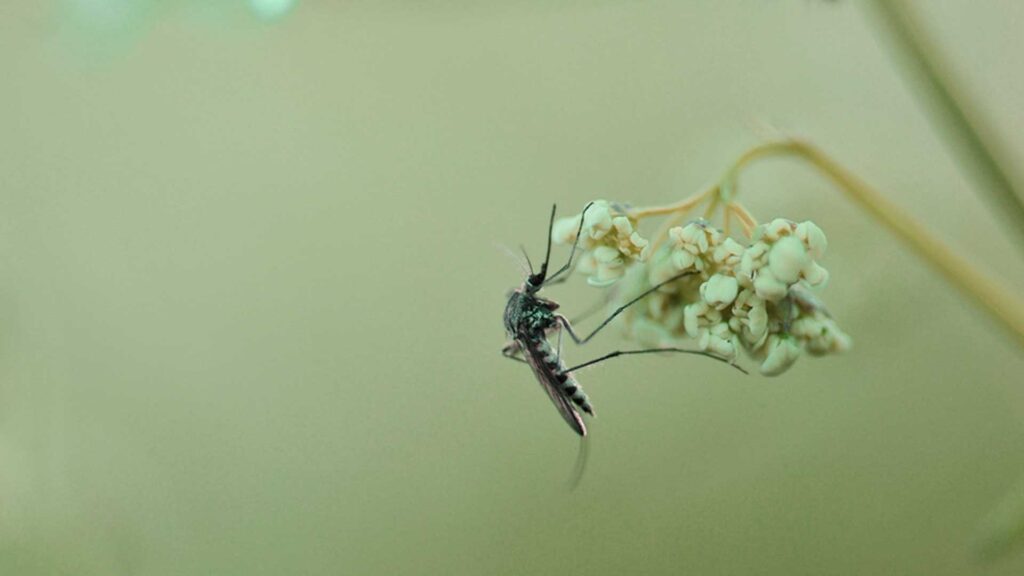How to get rid of mosquitoes?
To effectively get rid of mosquitoes, homeowners should focus on eliminating breeding grounds by regularly emptying standing water from containers, cleaning gutters, and using mosquito-repellent plants like citronella. Applying EPA-approved insect repellents, installing window screens, and wearing protective clothing can reduce the risk of bites. For persistent problems, consider environmentally safe insecticides or innovative solutions like genetically modified mosquitoes. Community efforts in cleaning up and educating about mosquito prevention are also crucial for effective control.

- Understanding the Enemy: Mosquito Biology and Behavior
- Innovative Solutions: From High-Tech to Homemade
- Chemical Warfare: The Role of Insecticides in Mosquito Control
- Health Perspective: Prevention as a Cornerstone
- Looking Ahead: The Future of Mosquito Control
- Frequently Asked Questions About Mosquito Control
As dusk falls across neighborhoods, a familiar yet unwelcome sound often pierces the tranquility of summer evenings – the high-pitched buzz of mosquitoes. These tiny insects, no larger than a paperclip, are more than just a nuisance. They are a significant concern for homeowners, not only disrupting outdoor activities but also posing serious health risks. Mosquitoes are infamous for their ability to spread diseases such as Zika, West Nile virus, dengue, and malaria, turning them from mere backyard pests into vectors of potentially life-threatening illnesses.
The challenge of mosquito control has become increasingly pressing in recent years. Climate change, with its rising temperatures and altered rainfall patterns, has expanded the habitats of mosquitoes, increasing their numbers and the duration of mosquito seasons. This global shift has brought a heightened awareness of the need for effective mosquito management strategies, particularly in residential areas.
For homeowners, the battle against mosquitoes is often a summer-long campaign. These insects are not only persistent but also remarkably adept at finding breeding grounds in the most inconspicuous places around homes and gardens. A single rain-filled flowerpot or an uncapped garden hose can become the birthplace for hundreds of mosquitoes. Understanding the behavior and life cycle of mosquitoes is crucial in developing effective strategies to reduce their presence and mitigate their impact on our daily lives and health.
In this context, the quest for effective mosquito control methods has become more than a matter of comfort; it’s a critical component of home safety and public health. This article delves into the various aspects of mosquito control, offering homeowners a comprehensive guide to understand and combat these pervasive pests. From exploring the biology and behavior of mosquitoes to examining innovative control methods and practical home-based solutions, we aim to equip readers with the knowledge and tools necessary to reclaim their outdoor spaces and safeguard their health against the threat of mosquitoes.
Comprehensive Mosquito Control Strategies for Homeowners
| Strategy Category | Specific Action | Effectiveness | Considerations |
|---|---|---|---|
| Environmental Management | Eliminate standing water (e.g., bird baths, clogged gutters) | High | Regular maintenance required |
| Plant mosquito-repellent flora (e.g., citronella, lavender) | Moderate | Seasonal effectiveness; requires gardening | |
| Chemical Control | Use of permethrin-based sprays | High | Potential environmental impact; follow usage guidelines |
| Apply EPA-approved personal repellents | High | Skin sensitivity; reapplication needed | |
| Physical Barriers | Install window and door screens | High | Initial cost; regular maintenance |
| Use mosquito nets, especially in sleeping areas | High | Limited to specific areas; setup required | |
| Community Initiatives | Organize neighborhood clean-ups | Varies | Depends on community participation |
| Implement local mosquito control programs | High | Requires coordination and funding | |
| Innovative Approaches | Genetically modified mosquitoes | Emerging | Ethical and ecological considerations |
| Introduction of natural predators (e.g., dragonflies) | Moderate | Ecological balance considerations | |
| Personal Protection | Wear long sleeves and pants | Moderate | Weather dependent; may be uncomfortable in heat |
| Stay indoors during peak mosquito times (dusk and dawn) | Moderate | Limits outdoor activities |
Understanding the Enemy: Mosquito Biology and Behavior
To effectively combat mosquitoes, it’s crucial to understand their biology and behavior. These tiny insects, often seen as mere nuisances, are in fact complex creatures with unique characteristics that influence their survival and breeding.
Mosquitoes undergo a four-stage life cycle: egg, larva, pupa, and adult. This cycle begins when a female mosquito lays her eggs on the surface of stagnant or slow-moving water. Dr. Jane Smith, an entomologist, explains, “The first three stages of a mosquito’s life are aquatic. They can develop in any collection of water, no matter how small.”
After hatching, the larvae, commonly known as ‘wrigglers’, feed on organic matter in the water, undergoing several molts as they grow. The pupal stage, often called ‘tumblers’, is a time of transformation where the mosquito develops into its adult form. This entire process can take as little as a week in warm weather.
Adult mosquitoes exhibit distinct feeding behaviors. While both males and females feed on nectar and other plant sugars for energy, only the females bite humans and animals for the protein needed to develop their eggs. This behavior is what brings mosquitoes into conflict with humans.
Their peak biting times are typically during dawn and dusk, when the air is cooler and less windy. Mosquitoes are attracted to carbon dioxide, body heat, and certain body odors, which is why some people seem more prone to bites than others.
Mosquitoes have adapted to survive in a variety of environments. While they are most commonly associated with wetlands and tropical climates, they can also be found in deserts, forests, and even urban areas. Their ability to breed in small amounts of water means that any habitat with even minimal water accumulation can support their life cycle.
One of the most concerning aspects of mosquito biology is their ability to transmit diseases. When a mosquito bites an infected host, it can carry the pathogen and transmit it to other hosts it bites later. This makes them effective vectors for diseases like malaria, dengue fever, Zika virus, and West Nile virus.
Mosquitoes play a significant role in the ecosystem. They are a food source for a variety of animals, including birds, bats, and fish. Their larvae, which live in water, help break down organic matter and contribute to the aquatic food chain.
Understanding the complex biology and behavior of mosquitoes is key to developing effective control strategies. Their ability to adapt and thrive in diverse environments makes them formidable pests, but with targeted efforts based on scientific knowledge, it is possible to mitigate their impact on human health and well-being.
Innovative Solutions: From High-Tech to Homemade
High-Tech Mosquito Control Innovations
- Genetically Modified Mosquitoes: A breakthrough in biotechnology, genetically modified mosquitoes are designed to reduce mosquito populations. Trials in various regions have shown promising results, with significant decreases in local mosquito populations.
- Laser Systems: Emerging laser technologies target mosquitoes with precision, identifying and eliminating them based on their unique wing beat frequency. This method offers a non-toxic, highly effective solution for controlling mosquito populations.
- Smart Traps: Equipped with sensors and data analytics, smart traps attract and capture mosquitoes. These devices can identify species and population density, providing valuable data for targeted control strategies.
- Spatial Repellents: New developments in spatial repellents aim to create mosquito-free zones without the need for skin-applied products. These devices emit substances that disorient mosquitoes, effectively keeping them at bay.
In the ongoing battle against mosquitoes, homeowners and scientists alike are turning to innovative solutions that range from cutting-edge technology to simple, homemade remedies. These approaches not only aim to reduce the mosquito population but also focus on doing so in an environmentally friendly and sustainable manner.
One of the most groundbreaking developments in mosquito control is the use of genetically modified mosquitoes. This method, which has garnered attention for its trials in regions like Florida and Brazil, involves altering the DNA of mosquitoes to ensure their offspring do not reach maturity. In Florida, for example, a trial involving the release of genetically modified Aedes aegypti mosquitoes showed a significant reduction in the population. This method targets the mosquitoes without the use of harmful chemicals, making it an environmentally conscious choice.
Another high-tech solution is the development of advanced mosquito traps that use carbon dioxide and heat to mimic human breath and body heat, attracting mosquitoes.
These traps are more effective than traditional ones because they target the mosquitoes’ natural hunting instincts. Some of these traps even use artificial intelligence to differentiate between mosquito species, targeting those most harmful to human health.
On the other end of the spectrum, homeowners can employ a variety of homemade solutions to deter mosquitoes. One popular method is the use of natural repellents. Plants like citronella, lavender, and marigold can be planted around the home to create a natural barrier against mosquitoes. These plants emit scents that are unpleasant to mosquitoes, keeping them at bay.
DIY mosquito traps are also a popular choice. A simple homemade trap can be made using a plastic bottle, sugar water, and yeast. The yeast reacts with the sugar water to produce carbon dioxide, attracting mosquitoes. Once inside the bottle, the mosquitoes are unable to escape. This method is a cost-effective and environmentally friendly way to reduce the mosquito population around the home.
The most effective mosquito control strategy often involves a combination of high-tech and homemade methods. While high-tech solutions can significantly reduce mosquito populations, they are often more expensive and require more resources. Homemade remedies, on the other hand, are accessible and environmentally friendly but may be less effective on their own.
By combining these approaches, homeowners can create a comprehensive mosquito control plan. For instance, using genetically modified mosquitoes to reduce the overall population and supplementing this with natural repellents and DIY traps can provide a robust defense against these pests.
The fight against mosquitoes has entered a new era with the advent of innovative solutions. From high-tech genetic modifications to simple, homemade remedies, there is a range of options available for homeowners looking to protect their homes and health from mosquitoes. By understanding and utilizing these different approaches, we can effectively manage mosquito populations in an environmentally responsible way.
Chemical Warfare: The Role of Insecticides in Mosquito Control
In the arsenal against mosquitoes, chemical insecticides play a critical role. While natural methods and preventive measures are essential, there are scenarios where the use of chemical insecticides becomes indispensable, especially in areas with high mosquito populations or where disease transmission is a significant concern.
Insecticides used in mosquito control come in various forms, including sprays, larvicides, and foggers. Each type targets different stages of the mosquito life cycle. Adulticides, for instance, are designed to kill adult mosquitoes, often used in fogging operations. Larvicides, on the other hand, target mosquito larvae in water bodies before they mature into adults.
One of the most commonly used insecticides is permethrin, a synthetic chemical that mimics natural insecticidal compounds found in chrysanthemum flowers. Permethrin is favored for its effectiveness and relatively low toxicity to humans and pets when used as directed. Another group of insecticides, known as IGRs (Insect Growth Regulators), disrupts the growth and development of mosquito larvae, preventing them from becoming breeding, biting adults.
The efficacy of these chemicals is undeniable. Studies have shown that the strategic use of insecticides can drastically reduce mosquito populations and, consequently, the spread of mosquito-borne diseases. However, the environmental impact of these chemicals is a subject of ongoing debate and research.
Insecticides can have unintended consequences on non-target species, including beneficial insects like bees and butterflies. They can also affect aquatic life when runoff carries chemicals into waterways. Therefore, the application of insecticides is often carefully regulated and monitored by environmental and health agencies to minimize ecological disruption.
A significant challenge in using chemical insecticides is the development of resistance among mosquito populations. Over time, mosquitoes can develop resistance to certain chemicals, rendering them less effective. This has led to a continuous search for new formulations and the development of integrated pest management strategies that combine chemical and non-chemical methods.
Alternatives to traditional chemical insecticides are also being explored. Biopesticides, derived from natural materials like plants, bacteria, and certain minerals, offer a more environmentally friendly option. For example, Bacillus thuringiensis israelensis (Bti) is a bacterial larvicide that is highly effective against mosquito larvae and has minimal impact on other organisms.
The responsible use of insecticides is paramount. Homeowners using insecticides must follow label instructions meticulously to avoid over-application and potential harm to themselves and the environment. Community education plays a crucial role in this, as informed citizens are more likely to use insecticides safely and effectively.
While chemical insecticides are a powerful tool in mosquito control, their use must be balanced with environmental considerations and the ongoing challenge of resistance. The future of mosquito control lies in the development of new, more sustainable chemicals and the intelligent integration of various control methods.
Health Perspective: Prevention as a Cornerstone
In the realm of mosquito control, prevention plays a pivotal role, particularly from a health perspective. Dr. Laura Johnson, a public health expert, underscores the importance of proactive measures. “The key to reducing mosquito-borne diseases lies in individual and community efforts to prevent bites,” she states. This involves a multifaceted approach, combining personal protective measures with environmental awareness. Wearing clothing that covers the skin, such as long-sleeved shirts and pants, significantly reduces the risk of bites. The use of EPA-approved mosquito repellents containing DEET, Picaridin, or oil of lemon eucalyptus is also highly effective. These repellents, when applied according to the instructions, provide a strong defense against mosquitoes, particularly during peak activity times like dusk and dawn.
Moreover, the role of homeowners in creating a less hospitable environment for mosquitoes cannot be overstated. Ensuring that window and door screens are intact and free of holes is a simple yet effective barrier. Additionally, the use of mosquito nets, especially in bedrooms, provides an extra layer of protection during sleep, a time when individuals are most vulnerable to bites. Dr. Johnson also highlights the importance of community awareness and education. “Public health campaigns that educate on the dangers of standing water and the importance of regular yard maintenance can have a profound impact on reducing mosquito populations,” she explains. Such initiatives not only foster a safer environment but also empower communities to take collective action against the spread of mosquito-borne diseases.
In essence, the battle against mosquitoes is not just fought with sprays and traps, but through a concerted effort in prevention, both at the individual and community level. By staying informed and adopting these protective measures, homeowners can significantly contribute to safeguarding their health and that of their communities from the threats posed by mosquitoes.
Looking Ahead: The Future of Mosquito Control
As research continues, more innovative solutions are on the horizon. From new repellent technologies to ecological approaches like introducing natural predators, the future of mosquito control is promising. However, as Dr. Smith notes, “The most effective mosquito control strategy is a combined approach that includes community effort, personal protection, and staying informed about the latest developments.”
The battle against mosquitoes is multifaceted, requiring a blend of knowledge, innovation, and collective action. Homeowners, armed with an understanding of mosquito biology and behavior, can take proactive steps to minimize breeding grounds in their immediate environment. Simple actions like eliminating standing water, maintaining clean gutters, and using natural repellents can significantly reduce the presence of these pests.
Innovation plays a crucial role in advancing mosquito control methods. The development of genetically modified mosquitoes and new repellent technologies represents a leap forward in our ability to control mosquito populations effectively and sustainably. These scientific advancements, coupled with traditional methods, offer a comprehensive approach to tackling the mosquito problem.
However, the most potent weapon in this fight is community effort. The success stories from towns and neighborhoods that have united in their mosquito control efforts are testament to the power of collective action. When communities come together to clean up, educate, and implement control measures, the impact on mosquito populations is substantial and far-reaching.
Personal protection remains a critical component of mosquito control. The use of EPA-approved repellents, wearing protective clothing, and installing screens on windows and doors are simple yet effective ways to prevent mosquito bites. Public health experts consistently emphasize the importance of these measures, especially in areas prone to mosquito-borne diseases.
Looking to the future, the field of mosquito control is evolving rapidly. Ecological approaches, such as introducing natural predators to mosquito habitats, offer an environmentally friendly alternative to chemical methods. Ongoing research and development in this area are likely to yield new and improved strategies for mosquito management.
Ultimately, the fight against mosquitoes is not just about making our evenings more comfortable. It’s a crucial aspect of public health and environmental stewardship. By staying informed, adopting a multi-pronged approach, and working together, we can protect our homes, our communities, and our health from these ubiquitous and potentially dangerous pests.
Frequently Asked Questions About Mosquito Control
What attracts mosquitoes to my home?
Mosquitoes are attracted to standing water, where they breed, and carbon dioxide, which humans exhale. They also prefer warm, humid environments and are drawn to certain scents and body heat.
Are there any natural ways to repel mosquitoes?
Yes, certain plants like citronella, lavender, and marigold can repel mosquitoes. Additionally, essential oils such as eucalyptus and tea tree oil can be effective. Ensuring your yard is free from standing water also helps.
How effective are mosquito repellent sprays?
Mosquito repellent sprays containing DEET, Picaridin, or oil of lemon eucalyptus are highly effective. It’s important to follow the instructions on the label for safe and effective use.
Can I use mosquito nets to protect my home?
Yes, mosquito nets, especially those treated with insecticide, are effective in preventing mosquitoes from entering sleeping areas. Window and door screens also offer good protection.
Is it safe to use electronic mosquito repellents?
Electronic mosquito repellents, like ultrasonic devices, have mixed reviews regarding their effectiveness. It’s advisable to use them in conjunction with other proven methods.
How often should I apply mosquito repellent?
The frequency depends on the product’s active ingredient and concentration. Generally, repellents need reapplication every few hours, but always check the product label for specific guidance.
Can eliminating standing water completely get rid of mosquitoes?
While eliminating standing water significantly reduces mosquito breeding grounds, it may not completely eradicate them, as they can breed in neighboring areas and travel.
Are mosquito control services worth it?
Professional mosquito control services can be effective, especially in areas with heavy infestations. They use specialized equipment and products for comprehensive control.
What should I do if I have a severe mosquito problem?
For severe infestations, it’s advisable to consult with pest control professionals. They can provide targeted treatments and advice on long-term prevention strategies.
Can mosquitoes transmit COVID-19?
According to the World Health Organization, there is no evidence to suggest that mosquitoes can transmit COVID-19. The primary mode of transmission is through respiratory droplets.




